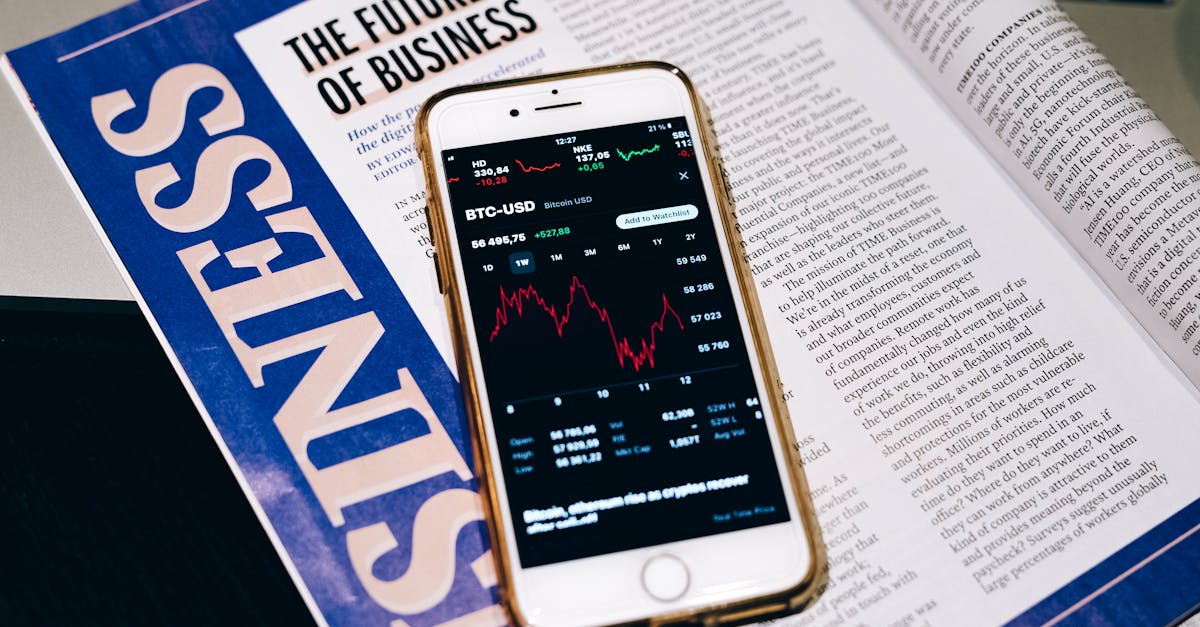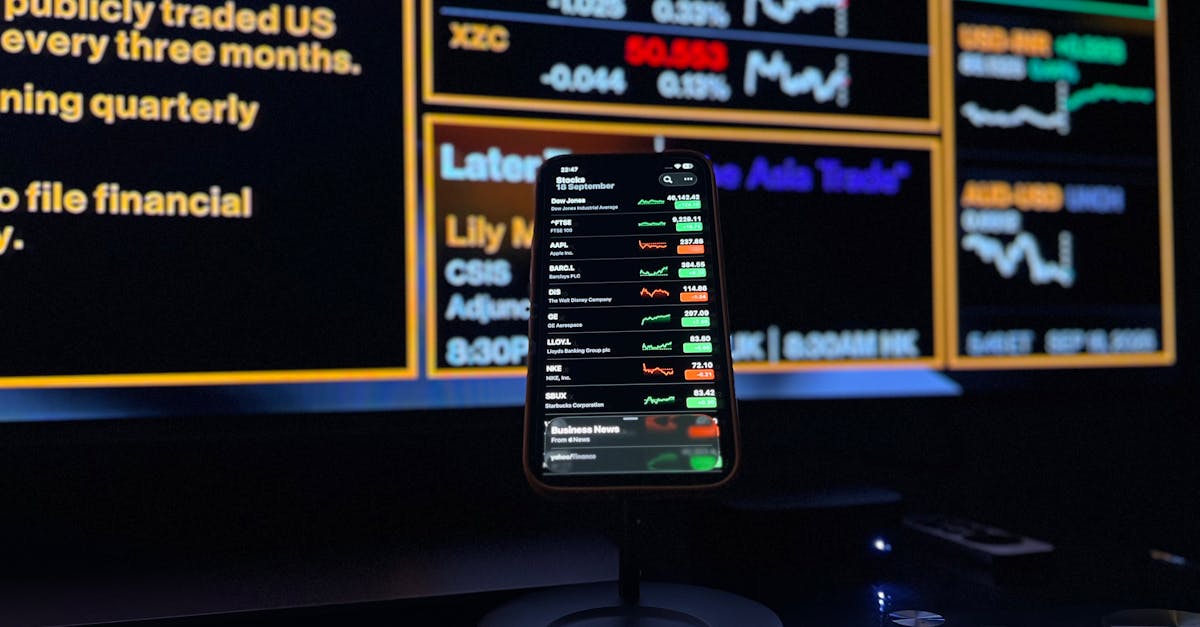Navigating Fiscal Futurism Trends in Finance by 2025
Introduction
The world of finance is ever-evolving, with fiscal futurism shaping its contours in unprecedented ways. As we approach 2025, several key trends are emerging that savvy investors, policymakers, and financial institutions must be aware of. From technological innovation to sustainable investing, the landscape promises both challenges and opportunities. While the global economic landscape has faced its share of disruptions, the potential for transformation remains immense. This article delves into the pivotal financial trends we're likely to see by 2025. Understanding these trends will be crucial for stakeholders aiming to stay ahead in an increasingly competitive environment.
Advertisement
AI Integration in Finance
Artificial Intelligence (AI) is redefining how financial institutions operate. By 2025, AI-driven tools are expected to manage everything from high-frequency trading to personalized banking services. With AI's ability to analyze large datasets quickly and accurately, it offers unparalleled insights into market trends and customer preferences. Financial advisors armed with AI technologies can offer investors more tailored insights, thus enhancing decision-making processes. This automation promises to reduce costs and increase operational efficiency, driving profitability for finance firms. However, ethical considerations and regulatory compliance will be vital to the successful implementation of AI across finance sectors.
Advertisement
Rise of Decentralized Finance DeFi
Decentralized Finance (DeFi) is a revolutionary development in the finance world, promising to democratize access to financial services. By 2025, DeFi platforms could challenge traditional banking systems, offering peer-to-peer lending, borrowing, and trading. Enabled by blockchain technology, these platforms eliminate the need for intermediaries, potentially lowering transaction costs and increasing transparency. Challenges such as regulatory uncertainties and potential security flaws must be addressed to enhance trust and adoption. Nevertheless, DeFi offers the promise of greater inclusivity, particularly in underserved markets, opening up new economic potential on a global scale.
Advertisement
Sustainable and Green Investing
Sustainability is no longer just a buzzword; by 2025, it will be a core focus in investment decision-making. Investors are increasingly prioritizing Environmental, Social, and Governance (ESG) criteria when allocating capital. Companies that incorporate sustainability into their business models are likely to attract more investment, as the demand for ethically sound investments grows. Green bonds and renewable energy projects are poised to take center stage, offering lucrative opportunities while encouraging environmental stewardship. As global climate concerns intensify, aligning financial goals with sustainable outcomes becomes imperative for long-term success.
Advertisement
Digital Currencies and Central Bank Digital Currencies CBDCs
Digital currencies are gaining traction, with Central Bank Digital Currencies (CBDCs) anticipated to reshape monetary systems by 2025. Unlike cryptocurrencies, CBDCs are backed by national governments, offering a stable and secure alternative for digital transactions. The adoption of CBDCs could streamline payment systems, reduce transaction costs, and enhance cross-border trade efficiencies. However, the introduction of CBDCs requires careful consideration of privacy, security, and integration with existing financial infrastructures. If managed well, CBDCs could define the future of digital money, marrying innovation with trust.
Advertisement
Global Financial Collaboration
In an interconnected world, international cooperation is central to economic progress. By 2025, financial collaboration among countries is expected to proceed at an accelerated pace. Initiatives to standardize financial regulations and promote fair trade practices will be critical for global economic stability. International organizations like the International Monetary Fund (IMF) and World Bank are likely to play pivotal roles in facilitating cross-border financial dialogues. Countries are encouraged to share technological innovations, ensuring robust global economic growth. Enhanced collaboration will help tackle challenges like economic inequality and climate change, emphasizing the importance of collective action.
Advertisement
Cybersecurity and Finance
As finance becomes increasingly digital, cybersecurity is paramount. By 2025, the finance sector must be fortified against cyber threats that pose risks to data privacy and operational integrity. Financial institutions are expected to invest heavily in cybersecurity measures, employing advanced encryption technologies and blockchain for secure transactions. Additionally, fostering a culture of awareness among employees and customers will be essential in mitigating risks. Cybersecurity resilience will not only protect financial assets but also enhance consumer trust, pivotal for thriving in the digital economy.
Advertisement
The Evolution of Customer Experience
Enhanced customer experiences will define financial services by 2025, driven by tech empowerment and personalized services. Financial institutions are integrating digital interfaces, like mobile apps and chatbots, to offer seamless interaction and support. Personalization will extend beyond services, with data-driven insights curating tailored financial products for individual needs. As consumer expectations evolve, firms must focus on empathy and agility to maintain a competitive edge. The focus on customer-centric innovation will transform traditional client interaction, setting new standards across the sector.
Advertisement
Challenges and Considerations
With opportunities come challenges, and the finance sector must navigate several complexities by 2025. Regulatory compliance remains a critical concern, as evolving technologies often outpace legislative frameworks. Adapting to a dynamic global economy requires flexibility and foresight, ensuring sustainable growth. Balancing technology adoption with ethical practices will be essential in fostering trust. Further, fostering educational programs around digital literacy will prepare the workforce for future trends. Through proactive planning, the financial sector can innovate responsibly and build a resilient future.
Advertisement
Conclusion
Fiscal futurism promises to redefine the finance landscape by 2025, heralding a new era marked by significant change. Embracing technologies like AI, blockchain, and digital currencies will drive growth and innovation in finance. Sustainable investing and global collaboration will play critical roles in shaping inclusive economic progress. As cybersecurity and customer experiences evolve, the finance sector will find itself better equipped to meet the future. Ultimately, proactive adaptation to these trends will ensure resilience, making 2025 a pivotal year for fiscal futurism in finance.
Advertisement


